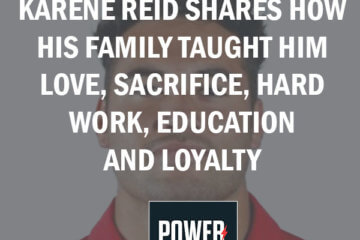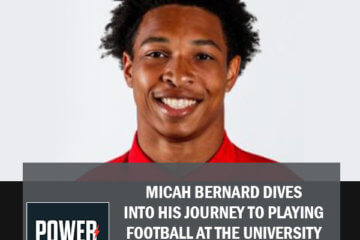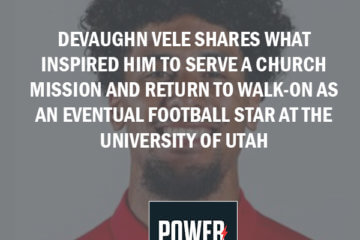Listen to the Podcast Here:
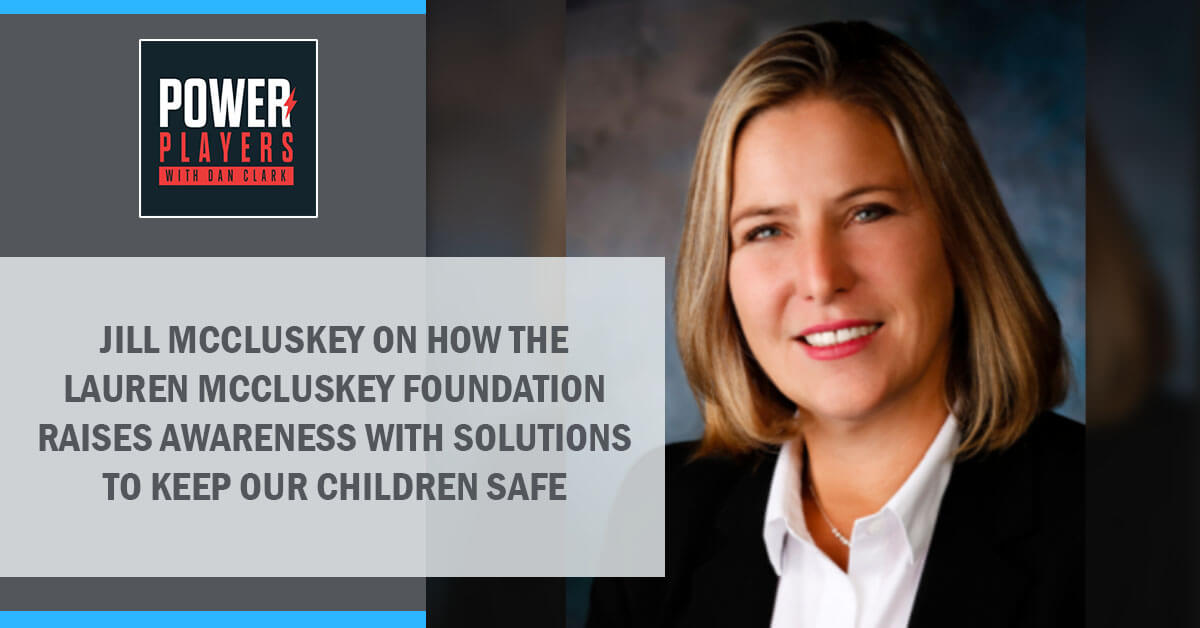
Let your light shine amidst the darkness. Jill McCluskey shares Lauren’s incredible life as an award-winning and record-setting track star that was tragically cut short because of a lack of campus security policies. Jill’s daughter was gunned down by her ex-boyfriend. Jill believes that preventive measures should have been implemented. In this episode, she advocates for the Lauren McCluskey Foundation that raises awareness with solutions to keep our children safe! It was founded to honor Lauren Jennifer McCluskey’s legacy. It seeks to prevent the same scenario that can happen to any female student and to provide a worry-free environment for parents. It also helps animal welfare and athletes. Stay tuned to gain valuable insights on making a difference in people’s lives.
—
Jill McCluskey On How The Lauren McCluskey Foundation Raises Awareness With Solutions To Keep Our Children Safe
This is an interview with Jill McCluskey, the mother of murdered University of Utah co-ed Lauren McCluskey. Welcome to the show. Thanks for spending some time with me. In this episode, my dear friend, Jill McCluskey, a Washington State University professor, whose daughter Lauren was gunned down by her ex-boyfriend in the parking lot outside her college dorm room here at the University of Utah, shares Lauren’s incredible life as an award-winning athlete and record-setting track star, and the details of this horrific murder caused by a lackadaisical campus security response.
This interview is especially dear to my heart because sweet Lauren was a student in my class at the University of Utah where I taught Advanced Public Speaking with the job to create a safe environment where we could show our vulnerability and talk to each other about what mattered most, and relationships trust, and service before self-worth was at the top of Lauren’s list. Her mother, Jill, gives us suggestions on how to keep our children safe, advocating for the Lauren McCluskey Foundation that raises awareness with solutions that have taken hold on university and college campuses across the country.
—
My introduction of Jill McCluskey is not just as a professor, not as a very smart, intelligent, and ambitious professional woman, but as the mother of Lauren McCluskey. Welcome to my program.
I’m happy to be here, and I have to say that she loved your class. It inspired her. It made her happy, gave her joy, and made her want to do more public speaking.
She was so extraordinary in her soft-spoken, graceful, yet intense way. I felt compelled to write a tribute to Lauren to make sure the world knew who she was and what I experienced in our short friendship as a professor and student, and in that tribute, I found a quote by Terry Pratchett that is why I’ve wanted you to be on my program and why this interview is not just important, but it’s sacred to do what we both need to do to keep the memory of Lauren alive.
Terry Pratchett said, “No one is finally dead until the ripples they cause in the world die away, the clock wound up winds down, the wine she made has finished its ferment and crop they planted is harvested. The span of someone’s life is only the core of their actual existence.” Let’s take a moment here, and please, from a mother’s perspective, tell the world about what made Lauren so extraordinary and special as a human being, not just as a student-athlete.
Lauren was a very hard worker, and as you said, she always put other people first. She was very sensitive to other people’s feelings and always thought about others. From a very young age, she worked very hard at her sports and was a nineteen-time All-American in USA Track and Field Outdoor Athletics and won some national championships in AAU Youth Track and Field. She earned a scholarship at the University of Utah. She was so excited to go there.

Lauren McCluskey Foundation: We need to investigate and respond with urgency when a young woman is requesting help and is basically putting forward signs of domestic violence.
She took her academics seriously and was a multiple-time Dean’s list student, but then, her friends and her relationships were so important. She had all sorts of different friends, from disabled kids to the other track athletes. She always cared about other people. I love your quote about the ripples. She inspires me to work hard, care about other people, and show kindness the way that she did. When I think about her, I think about her light shining. I try to do that to have her light shine through me through kindness If I try to be more like her.
As part of our joint mission, I want to invite everyone to participate in helping you raise funds for the Lauren McCluskey Foundation and to support your causes in honor of Lauren. We’ve got to discuss how the system failed. I have three daughters. That’s why I wept. Can you take us back and share the backstory of Lauren and then what happened that tragic night on October 22nd, 2018?
Lauren had met a man. She was very trusting and saw the best in people. He asked her to be his girlfriend, but he lied to her about his name, age and criminal history. When she found out about that, she broke up with him. When she broke up with him, he imprisoned her in her dorm room. She got rid of him by lending him her car.
She and I both called the police about it. We were concerned for her safety to get her car back because he wanted to give it back to her in a parking lot by herself. She got the car back, but it was only that the call was routed to security and not to the police even though we called the police, so the police didn’t know about it.
Then, a couple of days later, he started harassing and extorting her. She started reporting that to the police. She had many calls to the police. She told them that he was on parole, but they never investigated or helped her. This was the campus placement. She called the Salt Lake City police because she wasn’t getting any help. The Salt Lake City police only routed her back to the campus police, and she lived in an on-campus apartment.
On the day that she was murdered, he tried to lure her out of her apartment with a fake text. She called the police officer that she had been working with three different times. He finally got back to her and told her, “That is a fake text. Don’t follow it,” but did not do anything about it. Then, that night, as she was returning to her apartment, she was speaking with me on the phone and she was ambushed. He dragged her to a car, shot her seven times, and killed her. Within 40 or 30 minutes of her death, they then figured out he was on parole and contacted his parole officer. It would’ve only taken a few minutes to do that.
Lauren McCluskey always just cared about other people.
Prior to her death, they could have circumvented the entire situation.
It was very preventable.
Especially when he’s on parole and he violates the parole, that means he would have gone back and had been incarcerated. He would have been taken off the streets, out of the university campus, and taken Lauren out of danger.
Exactly. She gave them all the evidence they needed to do that. We have filed a lawsuit, and the reason we have done that is because they weren’t taking her seriously and have never admitted responsibility or taken accountability for their mistakes.
As I became a mixture of anger and disbelief when you and your husband wrote that opted outing the University of Utah’s response when President Ruth Watkins came out and claimed that in an independent investigation, their conclusion was that the University of Utah could have done nothing to prevent her murder, and I can’t even imagine how that made you feel. How did you deal with the news? How did you deal with the situation at that moment as a concerned mother?
I thought that they were trying to get to the bottom of the problem and make things better, and that seemed like they were trying to cover it up and avoid any liability, so that turned our relationship. When she said that, it made me physically ill. My stomach started hurting. I couldn’t believe that the report said that.
Is that when you filed the lawsuit to bring attention? If it’s just a small lawsuit, it garners no attention, but because your motivation is to increase awareness and to fix campus safety, teach us about the underlying reasons why you filed the lawsuit and why it’s so critically important that you win this lawsuit.
The lawsuit was a last resort. We wanted to work with them and to make things better, but we weren’t getting any traction. I was asking for change and Ruth Watkins stopped responding to my emails. We did a talk with an attorney, and it’s a title nine lawsuit. It’s gender discrimination based on they did not take a woman’s claims and requests for help or report seriously. This is so important for not just Lauren and the University of Utah, but especially for daughters at all universities that we need to investigate and respond with urgency when a young woman is requesting help and is putting forward signs of domestic violence.

Lauren McCluskey Foundation: The foundation is one of the ways to make a positive out of something that’s so painful and terrible.
Do you think this was more of an individual police officer breakdown or is it a system breakdown? Can you talk to us a little bit about that so we can get into your ideas of how we can better the system and how we can fix what’s broken?
I think it was a system breakdown, even going up to the chief of police at the time, who had received discipline for his own actions with women in the police department. There were many reports of even female police officers who were treated unfairly, and other victims of rape. There were many stories that came forward, especially with the reporting of Courtney Tanner at the Salt Lake Tribune that if someone went forward to report rape, they were questioned about if they caused the rape, for example, by what they were wearing or if it really happened and not investigating the actual crime. There were so many cases like that.
I also had a few mothers that reached out and contacted me that their daughters had been raped on campus and that the rapist was not caught and they weren’t getting help. It needs to be taken so much more seriously and responded with more urgency than it was. I think the new chief of police at the University of Utah is much better. There are a lot of improvements, and I think that there’s room for more improvement.
I also want to say that with the Lauren McCluskey Foundation, one of the missions is campus safety, and we’re thinking nationally, so we’re not only focused on the University of Utah. The University of Utah is where we’re starting because that’s where it broke down for Lauren, but we are thinking about this nationally. This is one of the ways that I can try to make a positive out of something that’s so painful and terrible if we can help your daughters, the young women, the children, the kids, and the girls that will follow.
In the midst of the writing and the social unrest that’s going on triggered by the death of that African-American man, Mr. Floyd, in Minneapolis, you hear all kinds of rationalizations, and I agree. I have so many dear friends who are police officers. Let’s say 99% of police officers do their job. There are character-based individuals with a North Star moral compass. They’re good human beings, but we can’t say there was just a bad cop, because, in my experience, we athletes can get it wrong. Newscasters and sportscasters can get it wrong, but there are certain professions that we can’t afford to have 1% bad apples.
I traveled the world. Delta Air Lines has about 6,000 planes take off and land every day. Here’s my question. If Delta’s maintenance department is running at 99% success efficiency, that means that if 1% of 6,000 flights every day is 60 planes taking off and landing and 1% of those 6,000 flights crash every day, that’s unacceptable.
The Lauren McCluskey Foundation’s mission is to improve campus safety so we don’t have another tragedy.
One percent failure rate is unacceptable, so when you put that on certain professions, especially police officers and detectives, we can’t afford to have one bad cop. We can’t afford to have one lapse and one breakdown when you and beautiful Lauren contacted the department time and time again, and because of the lack of focus, irresponsibility, or the cavalier attitude towards young women as what’s coming out in the new breaking news about the detective who was such a psychotic fool who was assigned to take care of Lauren. We can’t afford to have one bad cop and to have a 1% breakdown.
What do you think we can do to improve the system? You said that the good place to start is with the new police chief, but what could we do as far as screening? What could we do as far as background checks? I’ve been pulled over by police officers and highway patrolmen who are gentlemen, and I have so much respect.
My little league baseball coaches, it was called the Cops’ League, and Officer Trosen and Officer Waggaman were classy human beings, but I’ve also been pulled over by complete idiots that have no business wearing a badge, and especially carrying a gun hiding behind that badge, so what can we do? After these two years have gone by, what do you think we could do to improve every police department, especially on the college campuses?
Part of it is to recruit more female officers because research has shown that women are more likely to report and female officers are more likely to take it seriously. If there’s even a little bit more of a mix of both male and female officers, I think that could help. You can have the training, but sometimes, training doesn’t work because it might not change the underlying attitudes.
I’m not sure. It’s something that we want to work on with more research with experts in this area about the best way to screen and put in place disciplinary actions, and maybe, dismissals when officers show or reveal that they have these wrong attitudes or even are predators. I view the officer that Lauren worked with as a predator.
When we focus on Lauren, which we need to do, and when we focus on increasing campus safety, which we need to do, the question is, how are you dealing? What have you gone through? How can we learn the lesson? Could you share what you’ve gone through or what you’ve learned with other mothers, especially those who have to deal with grief and the loss of loved ones and children?
It’s often hard. There are times when I’m fine and working at my job as a professor, but then there are times when suddenly I’m overcome with grief, and that’s part of it and it will always be there. It’s harder, but I rely on friends and family, and I’ve become closer with them. I’m amazed by so many wonderful people who have given themselves, who have volunteered for our foundation and cared. The wonderful kindness that so many people have shown us is amazing, and that helps, and then I also have faith in God, which helps too.
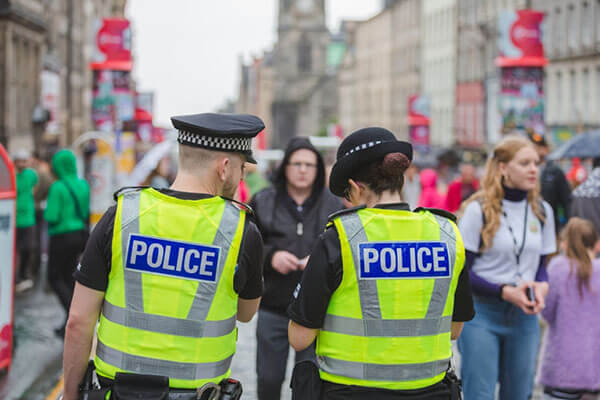
Lauren McCluskey Foundation: Research has shown that women are more likely to report and female officers are more likely to take it seriously. So if there’s even a little bit more of a mix, both male and female officers, that could help.
The ongoing vigils that fellow track team members or student-athletes at the University of Utah continuously and sporadically hold in honor of Lauren to keep those ripples in her memory alive is powerful and important.
The track coaches and the team are amazing and wonderful. One of her former teammates chose to go to be a teacher and instructor for surviving sexual assault and surviving strong, teaching other women how to fight off when being assaulted, and to be confident and not to be scared. It’s interesting to see what people are doing.
Also, to see the rival fans in a rival stadium prior to the University of Utah teeing it up against Brigham Young University and having all of those sports fans at a rival university honor Lauren before the game, and to see Mitchell, our superstar basketball player for the NBA Utah Jazz, honor Lauren in his uniform the night of the game right after her passing to acknowledge the superstar young woman she was off the track.
That’s why I made such a big deal about you, your husband, your family, and how she was raised in this family of faith, ambition and brilliance. We need to do everything we know how to do to put individuals like Lauren up on a pedestal and continuously teach our young women that they really can be all that they can be, that they were born to be like Lauren was.
Let’s wind down our interview here with the conversation about how we can support the Lauren McCluskey Foundation. Tell us about what its purpose is. I’m selfishly wanting you to admit that she volunteered with the Special Olympics and at the Humane Society, and those were the things that not a whole lot of the world knew, but when I found out about them, I smiled. I wasn’t surprised. I just said, “That’s Lauren.”
Teach us how we can support you as a grieving mom. Again, I’m going to keep reaching out to you and make sure that you know I’ll do whatever I can do to support your family, and if you ever need that extra shoulder to cry on or some way I can get involved, you know I’m here for you. I’m such a fan of Lauren. Can we talk for a minute about the Lauren McCluskey Foundation, its true focus, and purpose, and how we can get involved? You said it’s a national movement originating at the University of Utah campus. Let’s take it nationwide.
We are starting small, but we hope to be nationwide. We at the Lauren McCluskey Foundation have three missions, and they’re inspired by her. The first one is to improve campus safety, so we don’t have another tragedy. We don’t want this to ever happen again. The cost was too much, but we will save other young women because of this.
The wonderful kindness from people and faith in God helps you to move forward from a tragic event.
The second mission is to help animal welfare. Lauren volunteered at the Humane Society. That’s another one of our missions. Also, people have donated. For example, they built a cat wing in Pullman, so there’s a building that’s named after her in Pullman where she volunteered that helps cats to be adopted, and other people are doing similar things that are more regionally.
The last part is that we want to support amateur athletes. It’s a focus on women, but not limited to women. It could be young men too. We’ve already helped underprivileged athletes in track and field at the high school level travel to compete nationally. We are also personally raising funds for scholarships for female athletes. We have an endowed scholarship in her name at the University of Utah in their track program.
One of the things that we’re doing for campus safety so far is we’ve developed a syllabus statement that’s called Lauren’s Promise. It has been adopted by faculty at more than 35 universities around the world. A number of the Pac-12 universities associated students passed that they wanted it to be on all university syllabi. It basically says, “If someone is threatening you, I will listen and I will help.” The professor can put that on their syllabus so that the student knows that the professor cares, and it invites the student to ask for help.
Few of the faculty had told me that it had already made a difference that young women had come to them when they probably wouldn’t in the past and said, “This is what’s happening,” and they were connected with help. I feel like if Lauren had also gone to a professor or had gone to her coach, she didn’t. She just went to the police, but maybe, they would have paid more attention to her if she’d had that extra help.
We’re also partnering with some other organizations to figure out best practices, and we’re working with some of the legislators, including the state legislators at the State of Utah. Jani Iwamoto wrote the Campus Safety Bill, and we’re working with her. She’s working on another bill. One thing that we’re interested in having is a student crowdsourcing contest to have new ideas for how to improve campus safety because students have great ideas. They can be part of our research department. We want to get students at the University of Utah, but at other universities also to think about handling the communication and digital or online computer science. We’re thinking about all these different things and trying to make a difference.
Do you have an online source where you could accept donations from those that are reading so we can support this Lauren McCluskey Foundation?
It’s LaurenMcCluskey.org. We’ve done one Lauren McCluskey race for campus safety in Pullman, Washington, where she’s from. We’ll do that again, but after the pandemic, we’d like to do races in more cities, including in Salt Lake. We’ll be looking for volunteers as we go forward in that too.

Lauren McCluskey Foundation: You can have the training, but sometimes, training doesn’t work because it might not change the underlying attitudes.
You’ll tap into me because I’m at the top of the list. Please tell me.
I will.
We’ve come to the end of the episode. I love you. I honor your family. You are so amazing. Hopefully, you’ll re-read that tribute I wrote about Lauren. It was heartfelt. She made a difference, and to see every one of the 25 students, the other 24 students in that night class where I taught to have them each reach out to me and to show up at the vigil that we held at the steps of the administration building. I don’t know if they would do that for everyone, but they sure did it for Lauren. She will never be forgotten. We’ll do our best to continuously keep her mind, mission, name, personality and heart in front of the world. I appreciate you for being with us. You’re so amazing.
You’re amazing yourself, and you inspire me. This has been great for me to talk with you. Thank you for inviting me.
I’ll put you on the spot. I have one last question. What’s your takeaway? What do you want to leave with the world? What’s your one message to the world on behalf of Lauren and your family?
My main message is to care about each other and let her light shine through you with your kindness to others.
My friends, my audience, my ladies and gentlemen, my guest has been Dr. Jill McCluskey, an extraordinary human being, but more importantly, the mother of the fallen Lauren McCluskey. A superstar, student-athlete, and an extraordinary human being at the University of Utah, tragically lost her life. Let’s keep the McCluskeys in your prayers, and please, donate generously to the Lauren McCluskey Foundation. I can’t wait to see what we can do together to keep her ripples alive. Have a great day. Thanks for joining me.
Thank you so much.
Important Links:
- Jill McCluskey – LinkedIn
- LaurenMcCluskey.org
About Jill McCluskey
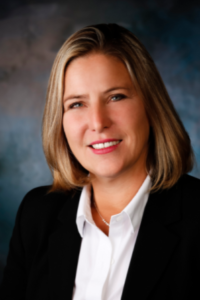 Jill J. McCluskey is Regents Professor and Director of the School of Economic Sciences at Washington State University. McCluskey’s research focuses on product quality and reputation, sustainable labeling, consumer preferences for new technology, and representation of women in STEM. An award-winning researcher, she has published more than 125 journal articles and her research has been cited more than 7,000 times. Her research has been funded by private foundations, NSF, and USDA. An award-winning mentor, she has served as major professor to 42 Ph.D. graduates, many of whom are Professors at major research universities. She is an incoming Editor of the American Journal of Agricultural Economics. She is past President and Fellow of the Agricultural and Applied Economics Association and Fellow of the Western Agricultural Economics Association. She is a member of the Board on Agricultural and Natural Resources (BANR) of the National Academies of Sciences, Engineering, and Medicine. Her research has been highlighted by various media outlets including the New York Times, National Public Radio, and Newsday. She received her Ph.D. in Agricultural and Resource Economics in 1998 from the University of California, Berkeley.
Jill J. McCluskey is Regents Professor and Director of the School of Economic Sciences at Washington State University. McCluskey’s research focuses on product quality and reputation, sustainable labeling, consumer preferences for new technology, and representation of women in STEM. An award-winning researcher, she has published more than 125 journal articles and her research has been cited more than 7,000 times. Her research has been funded by private foundations, NSF, and USDA. An award-winning mentor, she has served as major professor to 42 Ph.D. graduates, many of whom are Professors at major research universities. She is an incoming Editor of the American Journal of Agricultural Economics. She is past President and Fellow of the Agricultural and Applied Economics Association and Fellow of the Western Agricultural Economics Association. She is a member of the Board on Agricultural and Natural Resources (BANR) of the National Academies of Sciences, Engineering, and Medicine. Her research has been highlighted by various media outlets including the New York Times, National Public Radio, and Newsday. She received her Ph.D. in Agricultural and Resource Economics in 1998 from the University of California, Berkeley.
